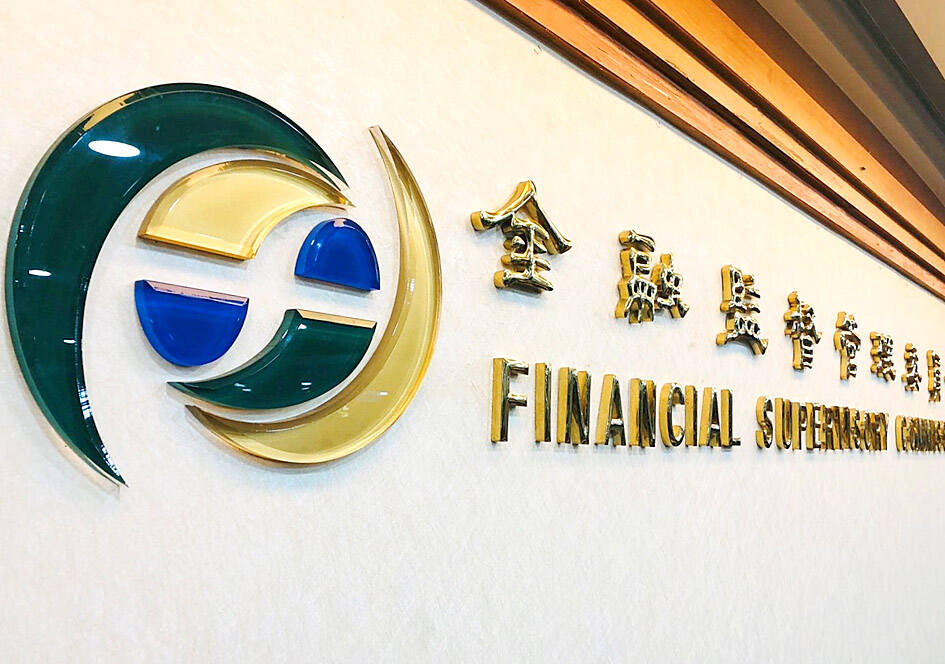Peer-to-peer (P2P) lending platform im.B is suspected of defrauding users of a large sum of money, the Financial Supervisory Commission (FSC) said yesterday.
The platform operator has one account each at four banks: CTBC Bank (中信銀行), Cathay United Bank (國泰世華銀行), E.Sun Commercial Bank (玉山銀行) and Bank SinoPac (永豐銀行), and only tens of thousands of New Taiwan dollars are left in them, Banking Bureau Director-General Sherri Chuang (莊琇媛) told a meeting of the legislature’s Finance Committee.
About 20 people have sought help from the police, and local prosecutors have begun investigating the case, the National Police Agency said at the meeting. More than 1,000 people have formed an online self-help group in an attempt to get their funds back, it said.

Photo: Kelson Wang, Taipei Times
The commission has not finalized how much money is involved in the case, but according to the self-help group it could amount to NT$2.5 billion (US$81.31 million).
Founded in 2015, im.B, which is short for “I am Bank,” enables users to lend money to other users. The platform provides interest of more than 6 percent to attract investors.
“It seems that the company has breached the Banking Act (銀行法) and is subject to criminal liability,” Chuang said, adding that im.B’s managers and representatives could be sentenced to more than seven years in prison if they are found guilty.
The commission would require the four banks to review and improve their know-your-customer operations, she said.
Peer-to-peer lending platforms are high-risk, and lending money via such platforms does not guarantee interest, Chuang said.

PROTECTION: The investigation, which takes aim at exporters such as Canada, Germany and Brazil, came days after Trump unveiled tariff hikes on steel and aluminum products US President Donald Trump on Saturday ordered a probe into potential tariffs on lumber imports — a move threatening to stoke trade tensions — while also pushing for a domestic supply boost. Trump signed an executive order instructing US Secretary of Commerce Howard Lutnick to begin an investigation “to determine the effects on the national security of imports of timber, lumber and their derivative products.” The study might result in new tariffs being imposed, which would pile on top of existing levies. The investigation takes aim at exporters like Canada, Germany and Brazil, with White House officials earlier accusing these economies of

EARLY TALKS: Measures under consideration include convincing allies to match US curbs, further restricting exports of AI chips or GPUs, and blocking Chinese investments US President Donald Trump’s administration is sketching out tougher versions of US semiconductor curbs and pressuring key allies to escalate their restrictions on China’s chip industry, an early indication the new US president plans to expand efforts that began under former US president Joe Biden to limit Beijing’s technological prowess. Trump officials recently met with their Japanese and Dutch counterparts about restricting Tokyo Electron Ltd and ASML Holding NV engineers from maintaining semiconductor gear in China, people familiar with the matter said. The aim, which was also a priority for Biden, is to see key allies match China curbs the US

Teleperformance SE, the largest call-center operator in the world, is rolling out an artificial intelligence (AI) system that softens English-speaking Indian workers’ accents in real time in a move the company claims would make them more understandable. The technology, called accent translation, coupled with background noise cancelation, is being deployed in call centers in India, where workers provide customer support to some of Teleperformance’s international clients. The company provides outsourced customer support and content moderation to global companies including Apple Inc, ByteDance Ltd’s (字節跳動) TikTok and Samsung Electronics Co Ltd. “When you have an Indian agent on the line, sometimes it’s hard

‘SACRED MOUNTAIN’: The chipmaker can form joint ventures abroad, except in China, but like other firms, it needs government approval for large investments Taiwan Semiconductor Manufacturing Co (TSMC, 台積電) needs government permission for any overseas joint ventures (JVs), but there are no restrictions on making the most advanced chips overseas other than for China, Minister of Economic Affairs J.W. Kuo (郭智輝) said yesterday. US media have said that TSMC, the world’s largest contract chipmaker and a major supplier to companies such as Apple Inc and Nvidia Corp, has been in talks for a stake in Intel Corp. Neither company has confirmed the talks, but US President Donald Trump has accused Taiwan of taking away the US’ semiconductor business and said he wants the industry back